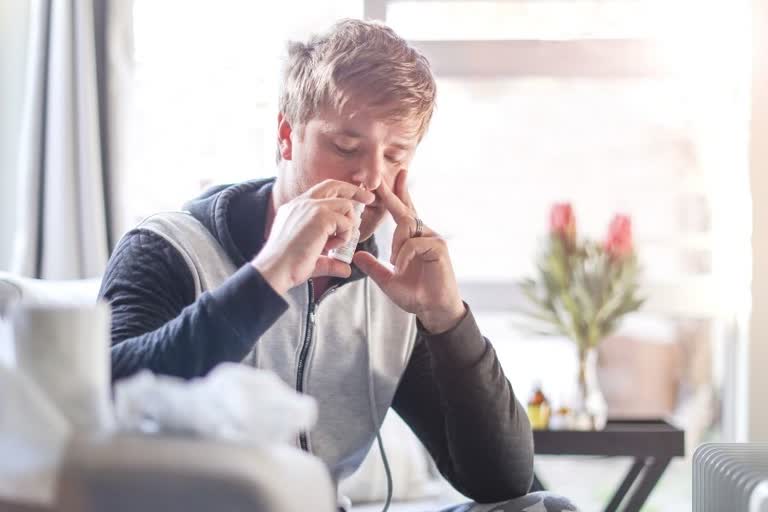Heparin, a widely used blood-thinning drug to treat or prevent blood clots forms the base of the nasal spray treatment that is simple to administer, stable at room temperature and available globally.
According to Professor Gary Anderson, Director of Lung Health Research Centre at the University of Melbourne, the spray will be easy to use, with two puffs in each nostril, three times a day.
"Basic science studies revealed that intranasal heparin may be an effective way to prevent COVID-19 infection and spread. COVID-19 first infects cells in the nose and to do that the virus must bind to Heparan Sulfate on the surface of nasal cells lining the nose," Anderson said.
"Heparin -- the active ingredient in our spray -- has a structure that is very similar to Heparan Sulfate, so it behaves as a 'decoy' and can rapidly wrap around the virus's spike protein like a python, preventing it from infecting you or spreading the virus to others.
"Importantly, this nasal spray should prove effective for all COVID-19 variants because the Heparan Sulfate binding site is essential for infection, and is likely to be preserved in new variants. Heparin binds avidly to the Omicron variant currently sweeping through the country," Anderson said.
Northern Health medical divisional director Don Campbell sparked the innovation, entertaining the possibility that the blood-thinning drug heparin could stop the virus growing in cells in the early months of the pandemic.
A slew of researchers from the Universities of Melbourne, Monash and Oxford have also confirmed that heparin can block the transmission of COVID-19 and prevent infection. The nasal spray is expected to undergo clinical trials in the first quarter of 2022.
"It is now essential that we test the actual effectiveness of Heparin in the rigorously designed, double-blinded, placebo-controlled clinical trial as this will provide definitive evidence. If the treatment is proven to work in the setting of preventing progression and spread within homes, it would support using the spray to protect highly vulnerable populations such as the elderly, pregnant women, and those with weak immune systems," Anderson said.
"It may also prove useful to protect our frontline health care workers from illness and to preserve capacity in the healthcare system. It must be stressed that heparin would be used on top of vaccination and would not replace vaccines," he noted.
(IANS)
Also Read:COVID infects kidneys and leads to scarring: Study
